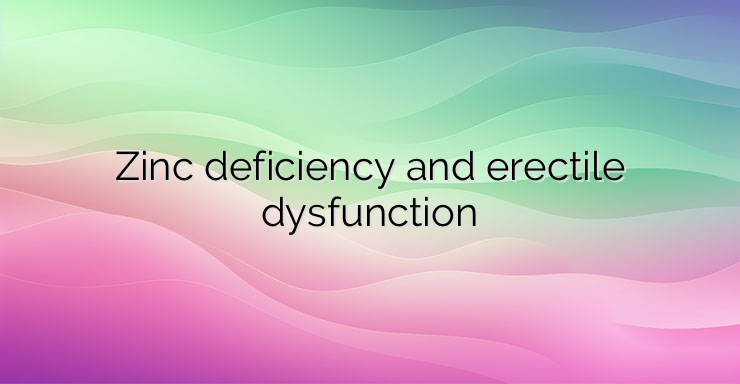Zinc is a trace element that plays a vital role in many aspects of health, including growth, immunity and reproduction. Zinc is involved in the production and regulation of numerous hormones, including testosterone. Some studies have shown a link between not having enough zinc and erectile dysfunction. Zinc is vital for the development and functioning of the male reproductive system. Men with zinc deficiency have been shown to have less developed testicles and reduced sperm count. Zinc helps produce key sex hormones, such as testosterone and prolactin. The trace element also plays a role in the formation of the main component of prostate secretion, which is an important component of seminal fluid. There is evidence that dietary zinc can affect male sexuality and duration of intercourse. A 2016 study found that a dietary supplement containing folic acid, zinc, and the herb goldenrod improved ejaculation control in men affected by premature ejaculation. There is evidence that zinc supplements are also a potential treatment for erectile dysfunction in men with long-term kidney disease. Erectile dysfunction is the inability to achieve or maintain a penile erection necessary for sexual intercourse. Most cases of erectile dysfunction are caused by a combination of physical and emotional factors. Physical factors, such as high blood sugar and cholesterol, reduce blood flow, which limits penile hardness. Other factors such as stress can reduce a man’s sexual desire or confidence. Serious diseases, especially those affecting hormonal regulation and blood circulation, can also lead to erectile dysfunction. In many cases of erectile dysfunction, additional symptoms such as delayed or premature ejaculation occur. Common causes of erectile dysfunction include: Cardiovascular disease; Lack of physical activity; High blood pressure; High blood sugar levels; High cholesterol levels; Smoking; Use of alcohol and other substances; Obesity or metabolic syndrome; Nerve damage; Spinal cord injury; Anxiety about sexual performance; Stress; Strained family relationships or conflict at work; Depression; Medicines. In recent years, zinc deficiency has also been linked to erectile dysfunction. It is estimated that about 17% of people suffer from zinc deficiency. Symptoms of zinc deficiency include lack of energy, poor appetite, slow-healing wounds, long-lasting respiratory infections, acne, dermatitis and psoriasis. References: 1. National Center for Biotechnology Information. Prasad, AS Zinc deficiency 2. Office of Dietary Supplements. Zinc 3. Mayo Clinic. Zinc supplement 4. Medical News Today. Can zinc help treat erectile dysfunction?


Leave a Reply